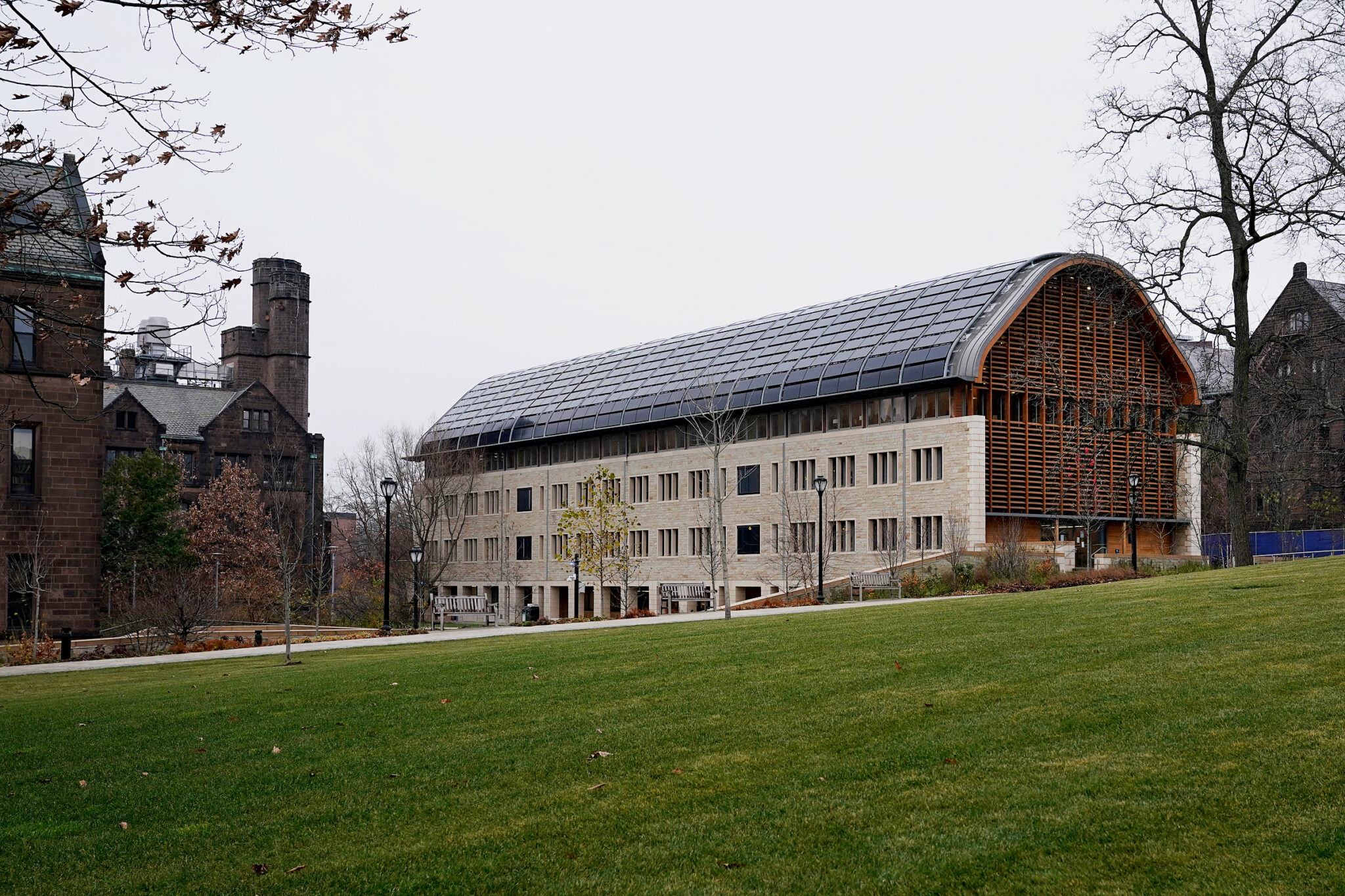
Tim Tai, Senior Photographer
The Yale Center for Business and the Environment and the Yale Center for Environmental Justice are partnering to launch a new online certificate program for working professionals.
The program, called the Clean and Equitable Energy Development certificate, or CEED, opened applications on April 10. It is designed to train working professionals in how to develop equitable clean energy infrastructure in their communities. Program administrators hope to target clean energy advocates and community leaders, such as church-based facility managers or low-income housing and health clinic workers.
Gelbotar said they also hope the course attracts clean energy developers who are eager to serve those communities.
“To make a system work in a way that is fair and just and functional for communities, the environment and the energy system, a lot of things have to change,” said Stuart DeCrew, the executive director at CBEY. “We need people who can teach us what that transition looks like.”
The online program will consist of two cohorts per year, running for 12 weeks in both the fall and spring. Classes begin on Sept. 2. The program will be conducted entirely online, with a combination of short, asynchronous lectures and other longer synchronous content including panel discussions and office hours, said Coral Bielecki, the online programs director at the Yale Center for Business and the Environment.
Students, who administrators anticipate will come from across the world, are expected to spend about five hours a week on the course.
Based on a pilot cohort that has been testing the course over the past semester, the program directors said they expect that participants in CEED will come from a variety of backgrounds — including school administrators, bishops, energy developers, policymakers and finance professionals, said Michel Gelobter, the director of the Yale Center for Environmental Justice and one of CEED’s lead instructors.
Graduate certificate programs, which are developed in partnership with the Poorvu Center, exist in several of Yale’s professional schools — including the School of Public Health. DeCrew said they are designed for individuals who may not have the time or resources to attend Yale’s graduate programs full-time but still want to continue their education and “unlock the best Yale has to offer.”
“We take the best classes from tenured faculty around Yale and condense them into a program that a 45-year-old with two kids and five hours a week could take,” he said.
The Center for Business and Environment, housed at the School of the Environment, previously developed a certificate program about financing and deploying clean energy in 2019. Since then, DeCrew said, the Center’s staff realized there was a need for a course to teach a step-by-step process for developing clean energy programs.
Gelobter said that CEED’s launch is also timely. He pointed to a recent influx of federal money for fighting climate change in disadvantaged communities — including the Biden Administration’s Justice40 Initiative, which mandates that 40 percent of nearly $2 trillion in federal investment for climate and clean energy must flow to disadvantaged communities.
In April, the Environmental Protection Agency announced $20 billion in grants to create a national financing network for clean energy infrastructure. Another federal program, announced on April 22, earmarked $7 billion in grant funding to deliver solar energy to low-income communities, DeCrew added.
Given the increase in funding available for clean energy projects, Gelobter said he believes that local organizers need to understand how to design clean energy programs that effectively utilize federal money.
Many of the participants in the program’s pilot cohort have been people who distribute federal funding or who will receive funding at state and local levels, Gelobter said.
“There’s a huge pressure and demand on anyone deploying that amount of money to do it in a way that’s just, fair and equitable,” Gelobter said. “A lot of the audience for this course are people in those positions.”
Key to the program, instructors say, are principles of environmental justice and energy justice: how climate change can exacerbate economic inequality and how clean energy infrastructure can be distributed fairly across disadvantaged communities.
Students will also learn how to design and implement clean energy programs at a technical level. They will learn how to finance and design projects like solar panel arrays, for instance, and then connect them to existing energy grids.
“If we’re going to get anything done, we have to see ourselves as the change makers and not wait for another generation to do it,” Bielecki said.
The Yale Center for Business and the Environment was founded in 2006.







